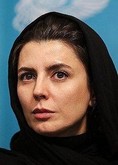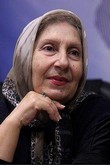
Jodaeiye Nader az Simin (2011)
A Separation / Nader and Simin, a Separation / Separation / جدایی نادر از سیمین

Raiting: ![]() 8,3 /10
8,3 /10
Genre: Drama
Director: Asghar Farhadi
Stars: Leila Hatami and Shahab Hosseini
Country: Iran / France
Release date: 15 February 2011
Length: 123 minutes





